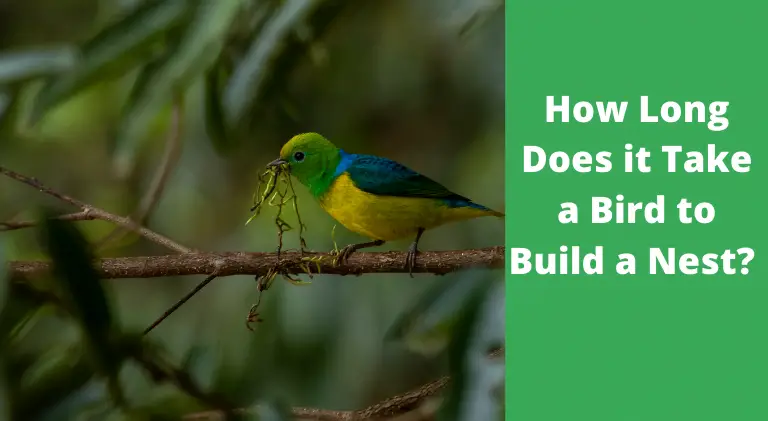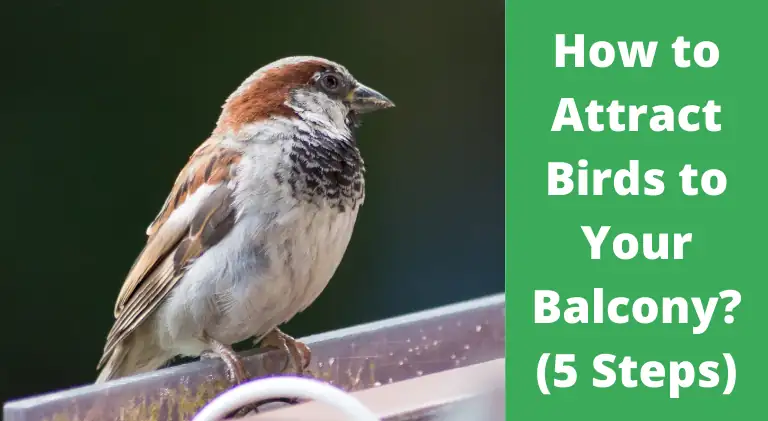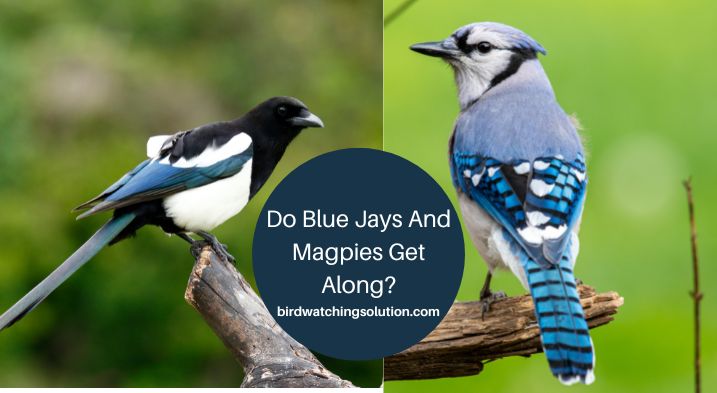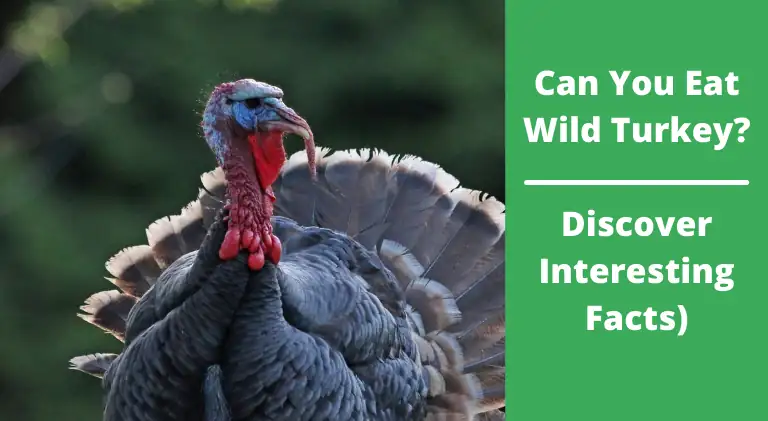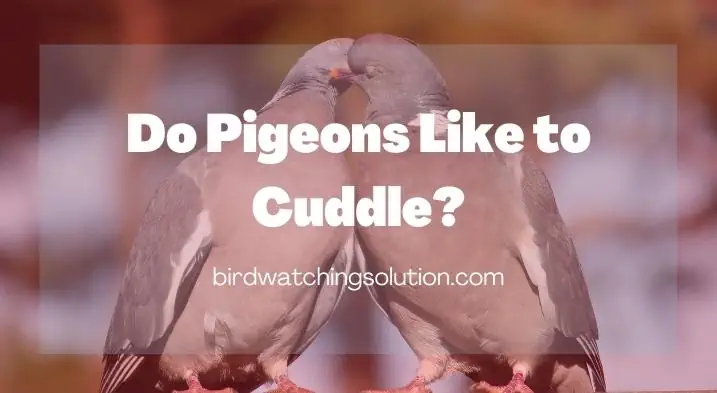How Long Does a Bird Egg Take to Hatch
If you have a bird’s nest in your yard and they have laid eggs then you will probably want to know how long does a bird egg take to hatch.
The time required for the eggs to hatch varies considerably from species to species. Small songbirds take between 10 and 2 weeks to hatch, while larger birds such as woodpeckers take anywhere from 3 weeks to a month.
However, just as I mentioned above, the incubation time varies from bird to bird. If you want to know everything related to bird eggs and their hatching period then keep on reading.
What Is Incubation Period?
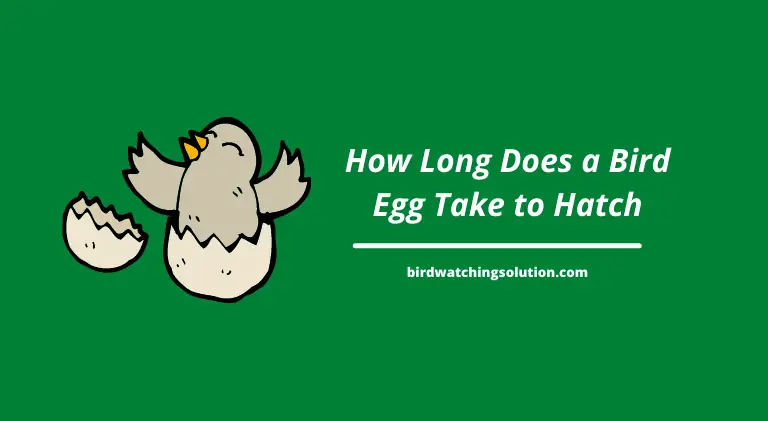
The incubation period is the time that eggs need to hatch. It starts once they are laid and ends when the baby birds, called chicks, break their way out of the eggshells using special enzymes that dissolve part of it.
The hatching process does not depend on the temperature, but on how fast the chicks develop.
Birds that do not incubate their eggs directly (such as ostriches) have longer hatching periods because of the time it takes for the embryos to develop before they are laid.
The incubation period is important because smaller birds tend to lay more eggs than larger ones in order to maximize their reproductive success.
For instance, small songbirds lay between three and nine eggs in a single brood, while larger birds such as cranes only lay around two eggs per season.
Although incubation is important for all bird species so that the eggs can hatch, not every bird sits on them constantly throughout this period. After laying her eggs, the mother bird will incubate them for an average of 12-14 days.
After this period, she leaves the nest and the eggs are left under the care of her mate for another 14-16 days before they hatch.
It is important to know that not all birds sit on their eggs constantly in order to keep them warm and safe, some birds will leave the nest for short periods of time in order to feed themselves or find water.
Which Birds Have the Shortest Incubation Period?
The shortest incubation period belongs to the Eastern phoebe, a small bird that usually lays four eggs. In this case, the incubation period is only 9-14 days. Most songbirds have an incubation period of between 10 and 18 days. Some smaller birds such as sparrows have even shorter periods which range from 9 to 15 days.
Which Birds Have the Longest Incubation Period?
The longest incubation period belongs to the golden eagle, which has an average incubation period of 42-45 days (although it can take longer). Other birds with long periods include game birds like pheasants, grouse and partridges. Their eggs require an average of 30 days of incubation.
How Do Birds Keep Warm While They’re Incubating?
Birds do not have sweat glands, so they can’t lose heat through evaporation. Instead, they keep warm by fluffing their feathers and holding their wings close to their bodies. In order for an egg to hatch properly, the internal temperature of the nest must be at least 86 degrees Fahrenheit (30 degrees Celsius).
However, during cold periods or rainy days, mother birds sometimes leave their nests in order to find a better place with a higher temperature. They will also cover their eggs with their feathers and only leave the nest when they need to feed or drink water.
What Signs Will I See From a Fertile Egg?
The most simple way to check if an egg is fertile is by candling it, a process of shining a light through the shell that allows you to see inside. You can also check whether an egg will be fertile or not by placing it in a glass of water. If the egg sinks to the bottom, then there is no life inside or it will never hatch.
You can also check for cracks or air bubbles using these methods, whether they are on the shell’s surface, at its tip or elsewhere. This is because fertile eggs are less dense than infertile ones so they will float.
There are various ways to check if an egg is fertile or not, but the simplest one is candling it and checking whether you can see inside of it. However, this method does not always work as some eggs that contain live embryos will still show no signs after being candled several times.
What Is the Most Common Cause of Infertility?

The most common cause of infertility is the egg being infertile. This means that it has either not developed properly or it has been fertilized by sperm that do not contain any genetic material. Sperm can stop developing before they reach the egg if they are exposed to certain environmental conditions.
The second most common cause of infertility is the sperm being infertile. This means that the genetic material they contain has been damaged or altered as a result of environmental conditions such as heat, air pollution or smoking. In this case, usually there are too many abnormal sperm in an ejaculate to achieve fertilization.
In some cases, however, both the egg and the sperm are fertile but they do not match, meaning that certain genes that determine the appearance or characteristics of a bird may be faulty or mutated. This condition is known as “genetic infertility” and it is very rare.
What Is Hatching?
Hatching refers to when an embryo uses calcium found in its eggshell to build a special membrane that separates it from the shell. This process is very intense and can take up to an hour. Once this membrane has been created, the embryo takes its first breath of air and starts moving inside the eggshell as it prepares itself for life outside of it.
What Are Some Problems That Might Prevent Hatching?
Some problems that might prevent the embryo from hatching successfully include:
The Eggshell Being Too Thick:
Often, eggs must be assisted in order to hatch because their shells are found to be too thick. The embryos will not be able to breathe and they will die inside the eggshell. This condition is known as “dystocia” and it is relatively common in ostriches.
The Egg Being Turned the Wrong Way Round:
When an ostrich lays its eggs, they are positioned with their flat side on the ground so that the embryo can easily develop inside of them.
However, if for some reason it turns around, then it will remain stuck to one side of the eggshell.
This condition is known as “solenopsis invaginata” and can also lead to the death of the embryo.
Do Birds Sit on Their Eggs All the Time?
Not always. In the wild, they usually sit on their eggs during the day and leave them for a few hours at night to search for food or water. They will also do this if the weather conditions are too hot.
Because it is known that high temperatures can lead to birth defects such as neurological problems due to an embryo overheating quickly and not developing properly.
However, in captivity ostriches are known to sit on their eggs for up to 20 hours a day and the temperature does not need to be moderated.
Can Bird Eggs Hatch Without Mother?
Almost all eggs that are laid by birds need the warmth of their mother’s body to hatch. This is because once an embryo develops inside of an egg, it needs to be incubated for a specific period of time in order for hatching to occur.
This means that if the mother dies or abandons her eggs then they will not be able to hatch successfully.
How Long Do Birds Stay in Nest?
The amount of time they spend in the nest is not constant. It depends on weather conditions, predation and food availability.
If it is too hot then an ostrich will leave its eggs for longer periods to find shade or water.
On the other hand, if it is too cold they might remain in the nest all day long.
This is because the ostrich’s body has a natural thermostat that causes it to shiver or pant in order to regulate its temperature.
In this way, they will keep their eggs warm until hatching occurs.
How Long Does an Ostrich Egg Take to Hatch?
An ostrich egg takes around 40-45 days to hatch. In the wild they usually rely on their mother to assist them during the entire process.
In captivity, ostriches are known to be able to keep their eggs off the ground without assistance because some farms build wooden structures for them to use.
However, it is important to note that in some cases an ostrich egg can take up to 70 days or even longer to hatch. This is mostly due to the fact that they are very large and heavy for an ostrich chick.
How Long Does it Take for a Cardinal Egg to Hatch?
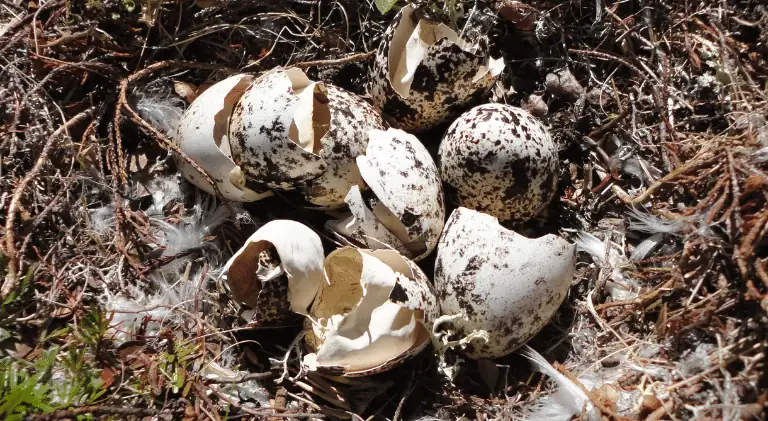
Cardinals take between 10 and 12 days to hatch. It also depends on their environment, but it usually takes around 2 weeks from the time they lay their eggs until hatching occurs.
In order to provide warmth for the eggs, a couple will often share the same nest together even though there is only room for one of them at a time.
When the eggs are ready to hatch, they will roll out of the nest. At this point, both parents will take care of them for a few moments so that they can build nests and find food for each other.
How Long Does it Take for a Pigeon Egg to Hatch?
Pigeons can lay eggs in as little time as 12 hours. They take about 18 to 22 days to hatch, but this also depends on the type of pigeon because some types will live in colder climates than others.
For example, rock pigeons are known to live in very warm conditions where they do not need to use energy building nests and finding food.
In addition, it is important to know that not all pigeon eggs will hatch at the same time because they can be laid in batches of up to 4 eggs and only around 2 or 3 of them will typically succeed in hatching successfully.
How Long Does it Take for a Quail Egg to Hatch?
A quail egg takes a little over a month to hatch. It usually takes around 18 to 21 days during spring and summer, but it can take longer if the weather conditions are not suitable for incubation.
In this way, quail eggs will typically hatch together which is why more often than not they are raised in large groups rather than alone because there is safety in numbers.
How Long Does it Take for a Chicken Egg to Hatch?
A chicken egg takes around 21 days to hatch, but this can vary depending on the breed of chicken that is laying them. For example, an egg that belongs to a very large breed could take longer than one belonging to a smaller type of chicken.
In addition, the weather conditions can also affect the time it takes for a chicken egg to hatch. For example, people who live in climates with extreme temperatures or high levels of humidity will notice that their eggs take longer to hatch.
How Long Does it Make a Turkey Egg to Hatch?
Turkey eggs need between 25 and 28 days in order to hatch.
However, it is important to note that turkey eggs usually hatch on their own without people having to assist them because the mother only leaves for a few minutes.
In this way, they can protect her from predators while she is off looking for food and water even though the babies are usually capable of doing difficult tasks such as finding a food source.
How Long Does it Take for a Goose Egg to Hatch?
A goose egg takes between 35 and 42 days in order to hatch, but again this depends on the breed of goose that is laying them.
Just like with chickens, geese eggs will typically hatch together which is why more often than not they are raised in large groups rather than alone because there is safety in numbers.
How Long Does it Take for a Duck Egg to Hatch?
Duck eggs typically need between 28 and 35 days in order to hatch.
However, this can vary depending on the breed of duck that is laying them. For example, one belonging to a very large species could take longer than one belonging to a smaller type of duck.
In addition, the weather conditions can also affect the time it takes for a duck egg to hatch. For example, people who live in climates with extreme temperatures or high levels of humidity will notice that their eggs take longer to hatch.
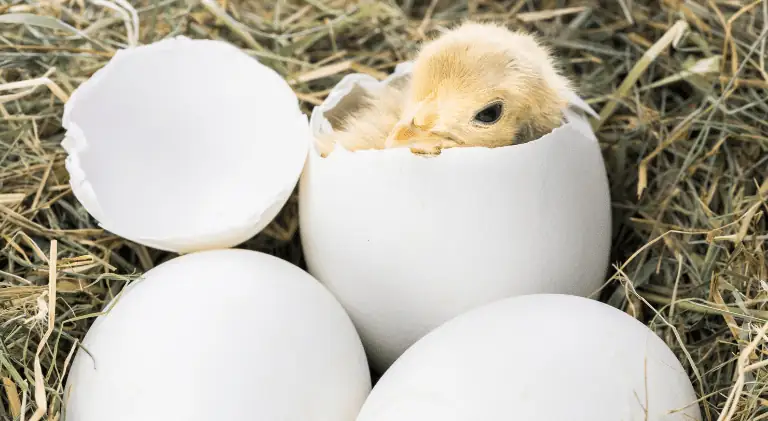
Last Minute Thoughts
How long does a bird egg take to hatch? Well, it depends on the birds. Usually smaller birds’ eggs take a short period to hatch, whereas large birds take longer to hatch.
Egg hatching also depends on various factors which can speed up the process or reduce the hatching period. I hope you’ve enjoyed reading this article. Please share this interesting piece of information with your friends and family to make their day.
Thank you for reading
Happy birdwatching.

